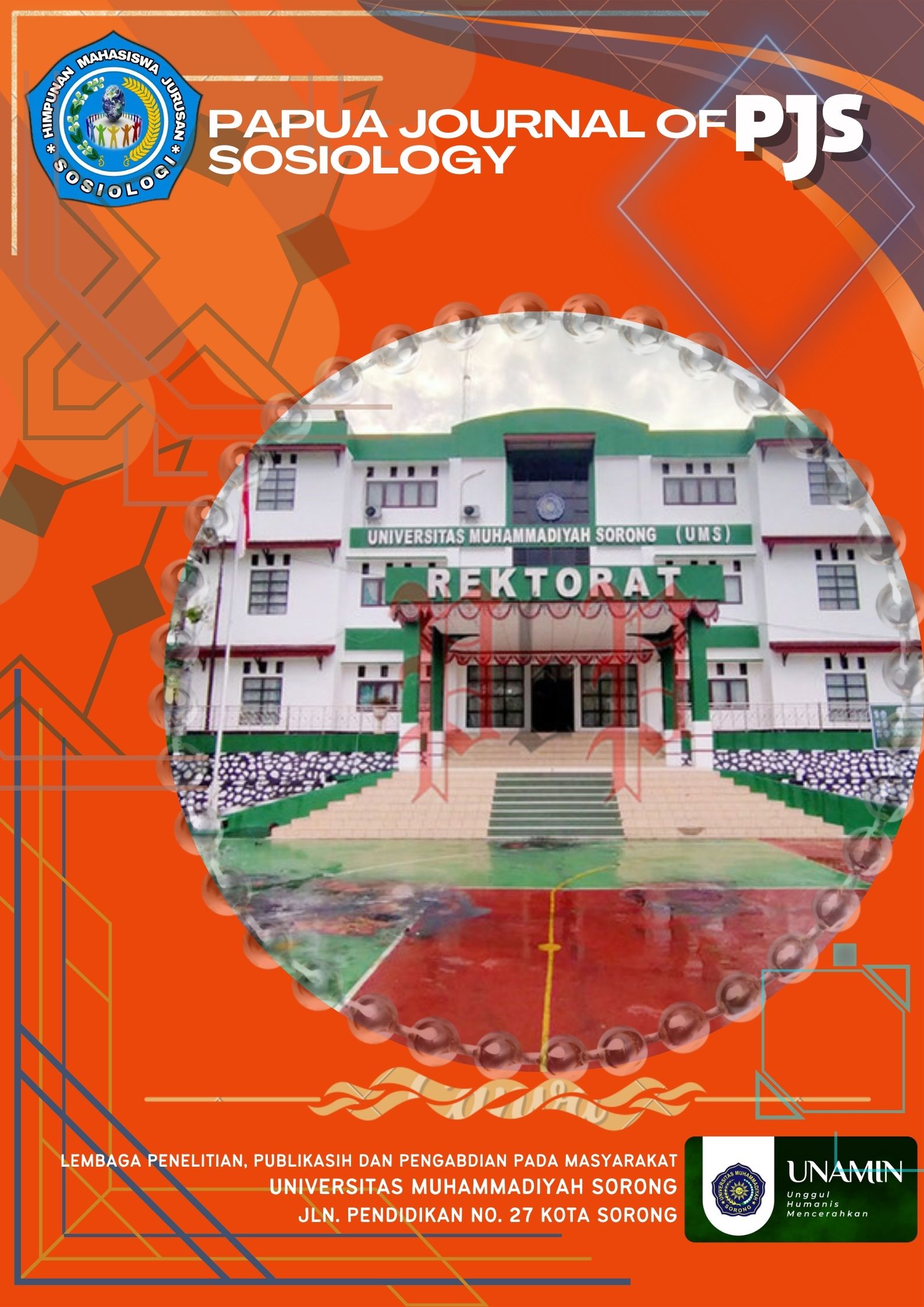
Publication Ethics
Publication Ethics
The following statements are based on Elsevier recommendations and COPE's Best Practice Guidelines for Journal Editors.
Papua Journal of Sosiology follows the COPE (Committee on Publication Ethics). This journal committed to upholding the highest standards of publication ethics and takes all possible measures against publication malpractice. Authors who submit papers to Noken attest that their work is original and unpublished, and is not under consideration for publication else where. In addition, authors confirm that their paper is their own; that it has not been copied or plagiarized, in whole or in part, from other works; and that they have disclosed actual or potential conflicts of interest with their work or partial benefits associated with it.
- Code of Ethics in Journal Publications
The publication of an article in a peer-reviewed journal such as the Papua Journal of Sociology (PJS) is an important element in the development of knowledge networks. This is a direct reflection of the quality of the work of the authors and the supporting institutions. Peer-reviewed articles serve to support and embody the scientific method. Therefore, it is very important to agree on ethical standards of publication for all parties involved in a journal publishing, whether writers, editors, editorial boards, review partners, publishers and the public.
The Research and Community Service Institute (LP3M) Universitas Muhammadiyah Sorong as the publisher of the Papua Journal of Sociology (PJS) is responsible for the entire publishing process and is fully aware of the ethics and responsibilities associated with the process. In addition, the Siciology Study Program, Faculty of Social and Political Sciences, Muhammadiyah University of Sorong and the Editorial Board strive to establish good communication with other journals and/or publishers when necessary.
- Publication Decisions
Prior to publishing both online and in print, the Papua Journal of Sociology (PJS), the Chief Editor who is responsible for publishing, asks for input from other editors and supports suggestions from reviewers. Where, it is also based on a series of journal publications starting from submitting manuscripts, checking editors, checking reviewers, checking layouts, checking plagiarism and copyrights. This is under the supervision of the Chief Editor and other Editors with the authority, so that the publication decision for the manuscript in the Papua Journal of Sociology (PJS) emerges.
- Confidentiality
Manuscripts published in the Papua Journal of Sociology (PJS) are highly protected for their informational value, where editors and reviewers are not allowed to disclose much information about a manuscript that has been submitted to anyone from the author, reviewer, editorial team, and publisher, but only those who appropriate and appropriate.
- Disclosure and Conflict of Interest
Unpublished material disclosed in a submitted manuscript should not be used by multiple members of the editorial board and reviewers in their own research.
Editor's Responsibilities
- The editor is responsible for deciding which articles are eligible for publication through editorial board meetings. Editors are guided by the policies of the journal's editorial board and are limited by applicable legal requirements regarding defamation, copyright infringement and plagiarism.
- In the process of accepting articles, the editorial team is based on the principle of equal treatment.
- In the journal review process and publication decisions (articles), the editorial team does not discriminate against the author's race, gender, religion, ethnicity, nationality, or political ideology.
- The editor and editorial team will not disclose any information about the submitted manuscript or article except with the permission of the author.
- Manuscripts (articles) that are not published after submission will not be used by the editor's own research and will be returned directly to the author.
Responsibilities of Reviewers
Reviewers assist editors in making editorial decisions on submitted manuscripts/articles.
- The reviewer is responsible for the recommendation of the article being reviewed.
- The manuscript review is carried out objectively, and is supported by clear arguments.
- Reviewers are responsible for citations, references, and plagiarism of reviewed articles.
- Reviewers keep information confidential for personal gain.
Author's Responsibilities
- Authors must present articles of thought or research clearly, honestly, and without plagiarism and data manipulation.
- The author is responsible for the confirmation submitted for the article that has been written.
- Authors must comply with publication requirements in the form of originality, no plagiarism, and have never been published in other journals or publications.
- Authors must show references to the opinions and works of others who are quoted
- Authors must write manuscripts or articles ethically, honestly and responsibly, in accordance with applicable scientific writing regulations.
- Authors are prohibited from submitting/publishing the same article to more than one journal or publication.
- The author does not mind if the manuscript is edited without changing the substance or main idea of the article.
Publisher Responsibilities
Sociology Study Program, Faculty of Social and Political Sciences, University of Muhammadiyah Sorong as the publisher of the Papua Journal of Sociology (PJS) is responsible for:
- Publish articles which after going through the editing process, peer review, layout in accordance with the rules of publishing Scientific Journals.
- Ensure academic freedom for editors and reviewers in carrying out their respective duties.
- Maintain privacy and protect intellectual property and copyright, and editorial freedom.





